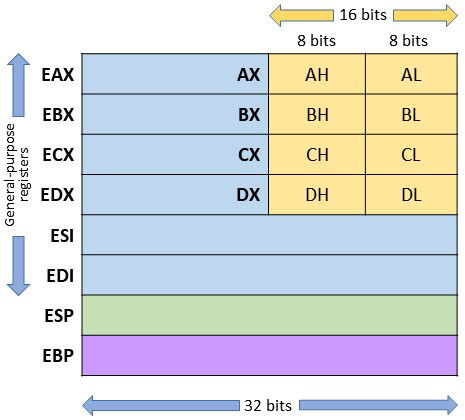The table below lists the
arithmetic operations. Since the printf command overwrites
registers eax, ecx, and edx, you need to store the results into
variables.
In add, CF (carry flag) is set if there is an overflow. In sub, CF
is set if there is a carry. In imul, the CF and OF (overflow)
flags may be set.
| Command | Description |
| add eax, ebx | Adds value in ebx to the value in eax |
| add eax, [A] | Adds value in variable A to eax |
| add eax, 32 | Add 32 to eax |
| add [A], 5 | Add 5 to variable A |
| sub eax, ebx | Subtracts ebx from eax |
| sub eax, [A] | Subtracts variable A from eax |
| inc eax | Add 1 to eax |
| inc [A] | Add 1 to variable A |
| dec eax | Subtract 1 from eax |
| dec [A] | Subtract 1 from variable A |
| neg [A] | Negates (switches) the sign of variable A |
| imul eax, ebx | Multiplies ebx to eax |
| imul eax, [A] | Multiplies variable A to eax |
| imul eax, 5 | Multiplies eax by 5 |
| idiv [B] | Divides 8 byte edx:eax by variable B. Quotient is stored and eax and remainder in edx. |
